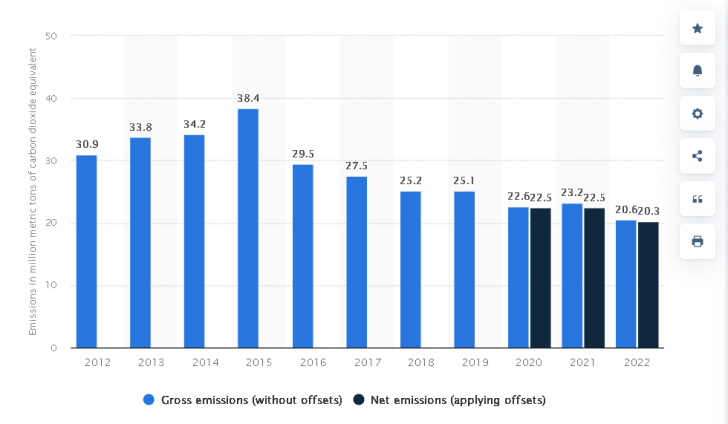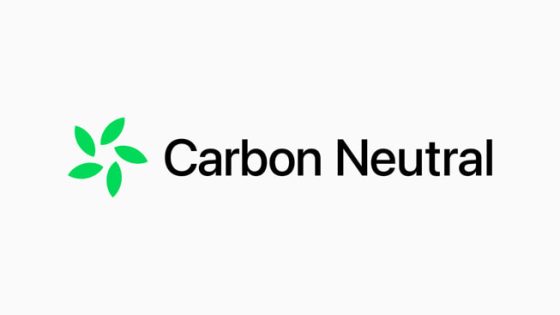Apple’s Carbon Neutrality Claims Face Scrutiny،
Apple, one of the world’s most valuable companies, is facing increased scrutiny over its claims that it is achieving carbon neutrality. The company’s goal is to achieve net zero carbon emissions across its entire supply chain by 2030. Nonetheless, there is growing skepticism about the country’s reliance on offsets of carbon, with critics saying it is not doing enough to reduce its emissions.
Companies use carbon credits or offsets to reduce their net carbon footprint by investing in initiatives that remove carbon dioxide from the atmosphere. The effectiveness of carbon offsets has been widely questioned, with some critics accusing Apple of using them to create an environmentally friendly image, a practice known as greenwashing.
The European Consumer Organization (BEUC) recently chastised Apple for its use of carbon credits, saying they are “scientifically inaccurate and misleading to consumers.” The report also found that, despite its claims of carbon neutrality, Apple’s carbon footprint is increasing.
Carbon neutrality or just “claims”
EU Brussels is set to ban by 2026 claims of “neutrality” based on the purchase of carbon credits to offset carbon emissions. The European Council and Parliament decided to ban “misleading advertising” in September, including claims based on the use of emissions offset schemes to market a product as having a neutral or positive impact on the environment, although these claims have not yet been formally adopted.
Apple & Co. pictured
Apple has a significant carbon footprint. The company’s gross emissions in 2021 were 23.2 million tonnes of carbon dioxide (CO2) equivalent, which exceeded the emissions of several small countries. NGOs around the world have questioned the quality of the credits purchased by Apple to offset its carbon emissions.

For example, established timber plantations in Paraguay and Brazil (such as the Forestal Apepu project) are used for carbon absorption, but there could be systematic flaws. That’s because wood is used to make everything from cardboard to toilet paper. The carbon absorbed by these wood plantations is quickly released into the atmosphere, which defeats the intended objective. The majority of trees are cut down and sold within a decade, creating a loophole or, let’s say, a systemic flaw.
However, Apple isn’t the only big tech company with a significant carbon footprint. Amazon, Google and Microsoft all have comparable carbon footprints.
Amazon, Google and Microsoft have also committed to achieving carbon neutrality. Amazon has committed to reaching net zero carbon emissions by 2040, while Google and Microsoft have set a 2030 deadline.
These companies, like Apple, rely on carbon offsets to achieve their carbon neutrality goals. However, all four companies have also invested in renewable energy sources and energy efficiency measures.
Critics argue that instead of relying on carbon offsets, Apple should focus on reducing its emissions. Specific suggestions include:
- Use a greater proportion of recycled materials in its products
- Improve product durability to extend its lifespan
- Customer product repair and recycling options are simplified
- Increase investments in renewable energy projects
Apple has taken steps to respond to these criticisms. For example, the company recently announced plans to use more recycled materials in its products. However, critics argue that Apple should take more drastic steps to reduce emissions and establish more sustainable operations.
Environmental organizations and consumers are scrutinizing Apple’s claims that it is achieving carbon neutrality. Critics say the company’s reliance on carbon offsets is misleading and that it should step up efforts to reduce its emissions.
Apple maintains its commitment to carbon neutrality and plans progress toward this goal. Nonetheless, the company must address its critics’ concerns and demonstrate the credibility of its carbon neutrality claims.
















